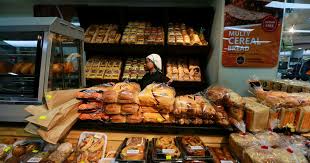The latest statistics from Nigeria indicated that the country’s raging inflation is far from over, reaching 33.20%, the highest in 28 years. The high cost of food, electricity, and other commodities are among the contributing factors…
Nigeria’s inflation continued to rise in March, reaching a 28-year high of 33.20% in annual terms, despite central bank rate hikes designed to slow it down.
Consumer inflation has risen for the 15th consecutive month, according to the latest National Bureau of Statistics statistics. It was 31.70 percent in February.
Inflation has not been this high in Africa’s largest economy and most populated country since early 1996, leaving millions of people struggling to afford their basic requirements.
Food is the primary source of inflation, with growing prices for commodities such as bread, grains, dairy, eggs, meat, and vegetable oil.
The cost of electricity also played a role, with many manufacturers paying expensively to power their production lines and move items across the country.
The naira, Nigeria’s indigenous currency, has strengthened, although this has yet to be reflected in the cost of products and services.
Electricity bills were recently raised by more than 300% for consumers who use relatively significant amounts of energy.
Africa’s biggest economy is experiencing a severe economic downturn, which has thrown many into poverty.
This was largely blamed on the eventual removal of subsidy on fuel by the Nigerian government, insecurity, and a lack of implementation of government policies to fast-track the needed change as and when expected.
The International Monetary Fund (IMF) has warned that 8.0% of Nigerians may likely face the risk of food insecurity if the current trajectory continues.






